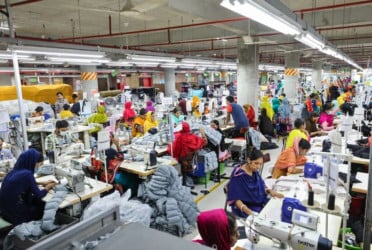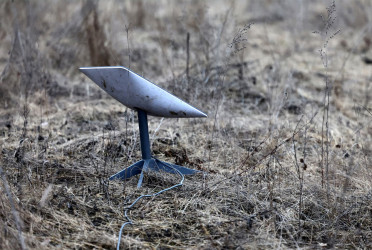France's midrange pret-a-porter chains are suffering due to the current economic crisis and structural problems. But some firms are surviving with sustainability, new digital concepts and branding, reports Deutsche Welle.
The global fashion industry is grappling with a crisis fueled by high inflation and Russia's invasion of Ukraine.
France's pret-a-porter sector is no exception. Even as French luxury labels such as Chanel and Louis Vuitton continue to churn out profits, many midrange brands have been forced to enter bankruptcy proceedings. Except for those with innovative approaches.
Insolvent brands include shoemaker Andre and women's fashion labels Camaieu and Kookai.
Our company used to be incredibly successful and we had about 300 retailers in ten countries," said Kookai's marketing director Jennifer Cohen Solal.
"But after the French group Vivarte bought the company in 1996, things started to go downhill — our clients gradually withdrew their love," she said.
Vivarte downsized the company's business to three countries — France, Spain and Switzerland — and stopped investing in the remaining 120 stores.
When Australia's Magi purchased the brand in 2017, one restructuring plan had already been implemented. A second one was to follow in 2021.
"Our frail financial health was the reason why banks then rejected our two demands for government-backed emergency loans after the start of the COVID-19 pandemic," Cohen Solal recalled. Kookai entered insolvency proceedings in February this year.
But Philippe Moati says today's high inflation and sinking purchasing power are just the final straw for many midrange pret-a-porter chains. He's a professor of economics at the Paris Cite University and founder of the Paris-based market research company ObSoCo.
"The monthslong yellow vest protests for more social justice from November 2018 meant many customers didn't feel like going shopping and more recently, weekslong lockdowns due to the COVID-19 pandemic aggravated the chains' cash-flow problems," he said.
"What's more, France has too much shop floor — the market is saturated — and since 2017, sales are allowed all year round, which has amplified competition," Moati noted.
He added that websites selling secondhand clothes such as the Lithuanian platform Vinted were putting the sector under further pressure.
And yet, France's midrange pret-a-porter sector did have a golden age, Gildas Minvielle, director of the Economic Observatory at Paris-based fashion school Institut Francais de la Mode, recalled.
But now, the sector is also having to cope with so-called fast fashion brands — extremely cheap and continuously updated clothes.
"The Chinese company Shein is particularly tough competition — this pure player with only an online presence sells all sizes including very small and very big ones," Minvielle explained.
Since the beginning of the pandemic, which instituted working from home in the business world, people bother even less about what they wear, reckons Michel Resseguier, a fashion industry veteran.
Some brands are performing well despite multiple crises — through innovative concepts, as Yann Rivoallan, head of the Paris-based Federation of Female Pret-a-Porter, says.
Bd-pratidin English/Golam Rosul

.jpg)


































































